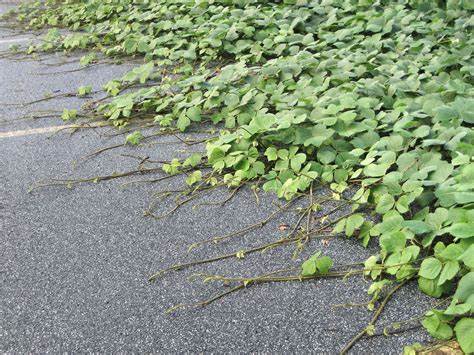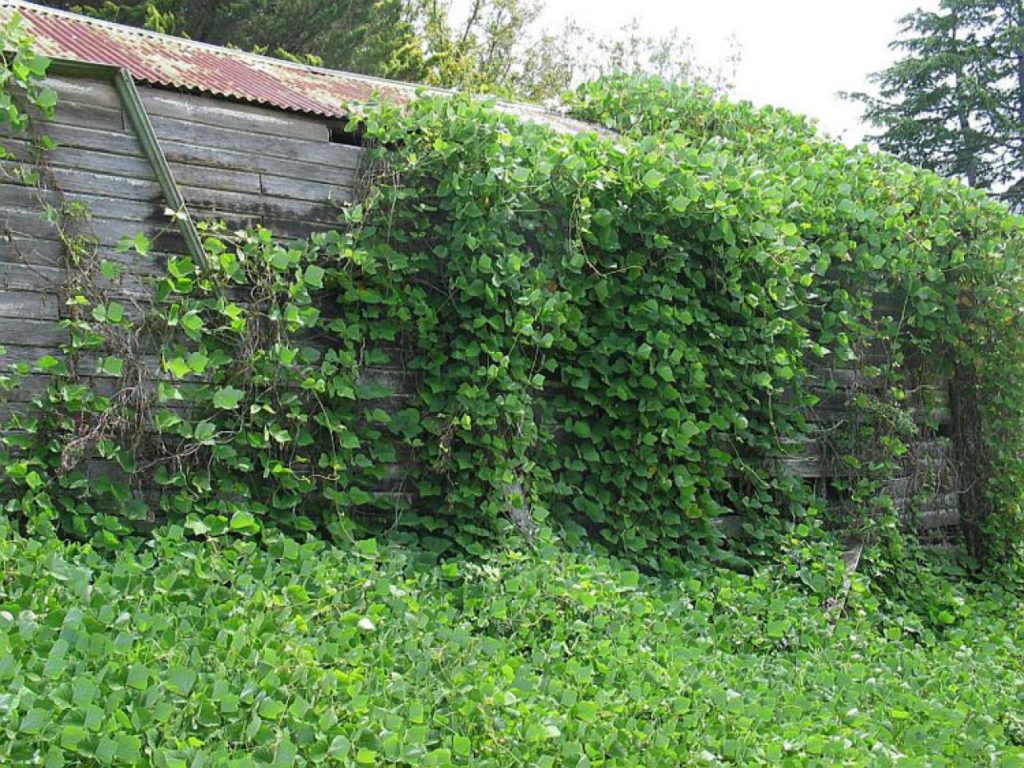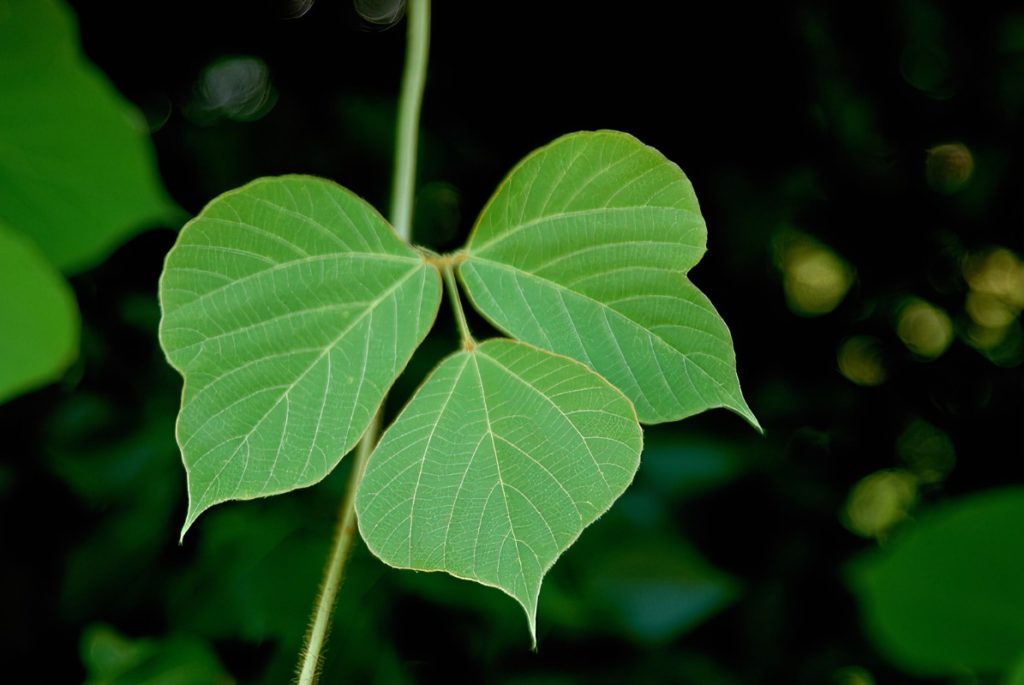The Kudzu vine is a rapidly rising weed problem in the southeastern United States and is frustrating to manage due to how quickly it spreads and how difficult it is to totally eradicate. Kudzu is a persistent weed that can grow up to 100 feet or more if there is no intervention. It has been noted that the invasive vine is growing in the area, particularly on the waterfront properties with vegetation. Such as Salmon Creek, the entrance to Salmon Creek, and Albemarle Sound. Here is a brief history and how to remove it from your yard if you find it growing.

I want to thank Sherri LaWall for bringing this to our attention.
Kudzu is a perennial vine hailing from the pea family. They have alternate and compound leaves, with three wide leaflets with hairy margins. The Kudzu vine can grow up to 12 feet in a day and is not slowed down by poor conditions. The vines can grow up and over almost any structure and literally covers objects with their fast-growing vegetation.
What helps Kudzu to thrive is its root system that forms very deep in the soil. These roots are hard to dig out completely. When you attempt to hand-pull or dig out these roots, any pieces that are left behind will eventually resprout and regenerate.

Where to Inspect
Kudzu vines are very conspicuous so you won’t be able to miss them on your property. Walk your property to observe where the vines are concentrated and how severe of an issue you have.
What To Look For
What stands out most about kudzu are their leaves which consist of three broad leaflets up to 4 inches across.

Treatment
Please be sure that when handling any type of herbicide, you are properly protecting your skin and eyes with safety equipment (goggles, gloves, and long-sleeved clothing).
The most effective way to treat Kudzu is a combination of mechanical control via cutting mixed with chemical control via applying herbicides. You should cut the vine down as much as possible and then apply a professional herbicide directly to the stem.
How to remove the vine?
Using an ax, machete, or saw, begin cutting down the kudzu vines. Survey the area to see where the vine is growing and whether it is a safe area to move forward with chopping down. Once the proper safety measures are placed and the area is analyzed you can then mow or cut the vegetation down until it gets to the ground level. Loppers tend to work well with this plant.
Kudzu is rarely eradicated with a single treatment. In order to completely destroy kudzu, you need to do several treatments. There is no herbicide available that will successfully remove kudzu in a single treatment. For younger, smaller roots, a few rounds of treatment may be enough to eliminate kudzu. For larger, older plants, you may need to treat kudzu several times a year for a few years to eliminate the plant. It can be sprayed upon Kudzu foliage, a freshly cut stump, or the bottom 12 inches of a woody trunk. Thoroughly covered is vital for the best possible results. Spray when the Kudzu is actively growing. Repeated applications may be necessary to ensure total eradication.
Remove kudzu during the correct times of the year. Regardless of the method you use, you want to make sure you remove kudzu at the right times of the year. Kudzu should be treated several times throughout the year.
- In late spring or early summer, begin your kudzu treatment once the leaves have fully expanded.
- New kudzu will usually emerge from the first kudzu plants. This should be treated again in later summer or early fall to prevent a reoccurrence.
Use herbicide conservatively. If you choose to use herbicide to treat kudzu, be careful. Only use herbicide in select areas and only apply the recommended amount. Read instruction manuals that come with your herbicides carefully, especially the safety instructions.
- Keep away from animals and children. Chemicals in herbicides can be toxic if ingested or touched.
Thank you
Laura Goguet
Community Manager